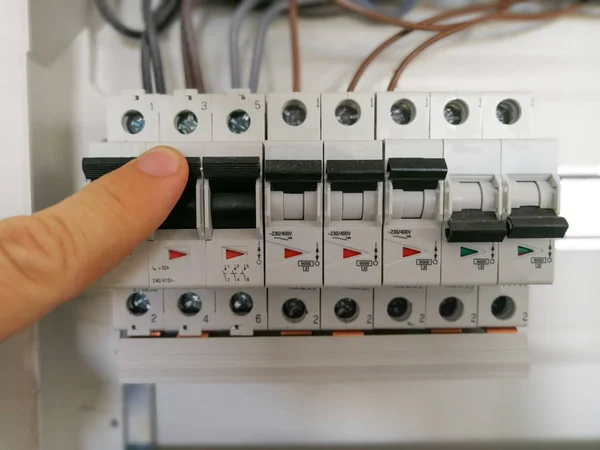Understanding the Importance of Circuit Breakers…
Learn what is the importance of circuit breaker for home safety. Understand how circuit breakers work, prevent hazards, and…
Electrical safety is a big deal for homeowners. The circuit breaker plays a key role in keeping your home safe. It’s a device that protects against electrical dangers.

It works by turning off the power when it sees an overload or short circuit. This stops fires and shocks. The importance of circuit breakers is huge. They keep your home and family safe.
Knowing how circuit breakers work helps keep your home safe. Homeowners can avoid electrical accidents. This makes your home a safer place to live.
It’s important to know how circuit breakers work to understand their role in keeping homes safe. Circuit breakers are automatic switches that protect electrical circuits. They prevent damage from too much current or short circuits.
A circuit breaker has several important parts. The frame gives it strength, the operating mechanism lets you control it, and the trip unit finds faults. The trip unit is the smart part that starts the tripping process.
When a problem happens, the trip unit finds it and tells the operating mechanism to open the circuit. This happens fast, stopping the electrical flow to avoid damage or fire. After that, you can reset the circuit breaker to turn the power back on.
| Component | Function |
|---|---|
| Frame | Provides structural integrity |
| Operating Mechanism | Allows for manual operation and tripping |
| Trip Unit | Detects faults and initiates tripping |
Understanding the difference between circuit breakers and fuses is key for home electrical safety. Both protect against overloads and faults but work differently. They each have their own benefits.
Fuses have protected circuits for decades. They have a metal strip that melts when current is too high, stopping the flow. Yet, they need to be replaced after blowing, which can be a hassle.
Circuit breakers, by contrast, can be reset and reused. This makes them more convenient and cost-effective over time. They also come with advanced safety features like GFCI and AFCI, which prevent electrical dangers.
Though circuit breakers might cost more upfront, they save money in the long run. The ease of resetting them instead of replacing fuses is a big plus.
In summary, circuit breakers beat fuses in convenience, safety, and cost. As our homes rely more on electricity, having a safe and reliable system is vital.
Residential electrical systems use different types of circuit breakers for safety and efficiency. The main types are single pole, double pole, Ground Fault Circuit Interrupter (GFCI), and Arc Fault Circuit Interrupter (AFCI) circuit breakers.
Single pole circuit breakers handle 120-volt circuits, found in lights and outlets. Double pole circuit breakers manage 240-volt circuits, like those for electric dryers and air conditioners. GFCI circuit breakers protect against ground faults, crucial in kitchens and bathrooms.
AFCI circuit breakers detect and stop arcing faults, lowering fire risks. Knowing how each type works is key to a safe and efficient home electrical system. If a circuit breaker trips, turn it off, find the cause, and then turn it back on.
The role of circuit breaker technology in homes is vital. It supports energy efficiency and meets updated electrical codes. This makes circuit breakers essential for home electrical systems.
Learn what is the importance of circuit breaker for home safety. Understand how circuit breakers work, prevent hazards, and…
Discover the key differences between AC generator vs DC generator. Compare AC vs DC generators to learn their working,…
Want to know how to soundproof your noisy generator? The easiest way is to make a soundproof box. Learn…